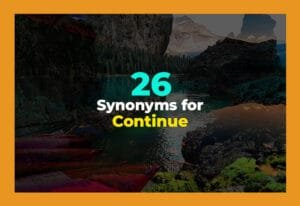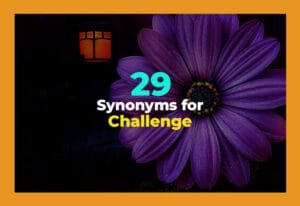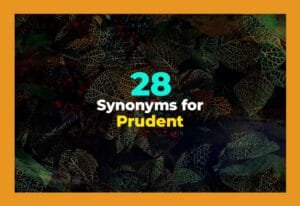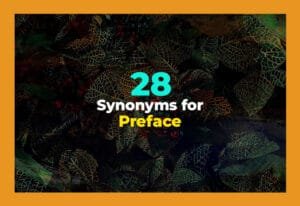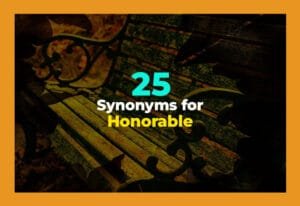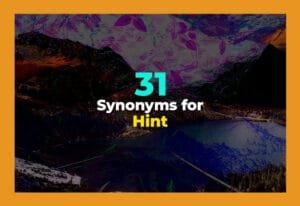Looking for the right word instead of ‘find’? You’re in the right place! Sometimes, saying ‘find’ over and over can feel boring, right? So why not mix it up with words like discover, spot, or track down? These words can make your writing or talking way more fun. Whether you’re writing an essay, talking to friends, or just learning, these synonyms will help.
1. Discover
When you discover something, you learn or see something new for the first time. It could be a new place, a secret, or even a fun fact. For example, ‘I discovered a cool little café near my house.’ This word makes everything sound a bit more exciting. People love to discover new things when they travel, read, or play games. It's a simple word with a big meaning. Next time you notice something cool or unexpected, you can say you discovered it. It makes you sound smart and curious too!
2. Locate
Locate means to find the exact place of something. It could be a lost phone, your friend's house, or even a hidden item in a game. ‘I finally located my missing keys under the couch.’ It's a great word when you are trying hard to find something. You can also use it for maps or directions. People use this word a lot when they're looking for something important. It sounds clear and useful, especially when you're helping someone or solving a problem. Try using ‘locate’ instead of ‘find’ next time!
3. Spot
To spot something means to see it suddenly or quickly. You can spot a bird in a tree, your friend in a crowd, or even a mistake in your homework. ‘She spotted her brother at the park.’ Spot is a fun and quick word that makes you feel sharp and alert. It's often used when you are good at noticing small details. You don't have to search for a long time to spot something—just look around and notice it. It's simple and fun to say too!
4. Detect
Detect means to notice something that is not easy to see. It's often used when something is hidden or tricky. For example, ‘The doctor detected a problem early.’ This word is used by police, doctors, or even scientists. You can use it when you talk about finding clues or small changes. Detect makes you sound smart and aware. It's a cool way to say you found something, especially when it's not obvious. Next time you notice something strange or different, say you detected it!
5. Uncover
Uncover means to take the cover off something or find out something hidden. You can uncover a mystery, a lost photo, or a fun surprise. ‘They uncovered an old map in the attic.’ It makes finding something sound like a big deal. People often use ‘uncover’ when they talk about secrets or important information. It's a great word for stories, adventures, or even in daily life. If you want your sentence to feel a little more exciting, try using ‘uncover’ instead of just ‘find’.
6. Identify
To identify something means to recognize it or say what it is. You can identify a plant, a person, or even a smell. ‘I identified the song playing in the background.’ This word shows that you really know what you’re talking about. It's often used in school or in science when you name something correctly. It's also helpful when you solve a problem. Identifying things shows you are smart and paying attention. So, when you figure out what something is, say you identified it!
7. Come across
Come across means to find something by chance. You're not looking for it, but you find it anyway. For example, ‘I came across an old photo while cleaning my room.’ This word sounds casual and fun. It's like finding treasure without even trying! You can come across cool stuff while walking, reading, or just living your day. It's great for telling stories and making your day sound more interesting. Try it next time you discover something unexpectedly.
8. Track down
Track down means to look hard for something and finally find it. It's like going on a small mission. ‘I tracked down the book I needed for school.’ It sounds active and determined. People use this word when they try many ways to find something. It could be a person, a lost item, or even a special place. If you work hard to find something, this word fits perfectly. It adds a little excitement to your story too!
9. Stumble upon
Stumble upon is just like ‘come across’. It means you find something without planning it. ‘I stumbled upon a cute little shop yesterday.’ This phrase sounds soft and sweet. It's perfect for when something good happens by surprise. You didn't plan it, but it made your day better. It's great for talking about nice surprises or cool discoveries. It makes your story sound fun and lucky too!
10. Reveal
Reveal means to show something that was hidden or secret. You can reveal a truth, a surprise, or a secret plan. ‘He revealed the answer after we all guessed.’ It makes finding something feel like a big moment. People use it in stories, games, and real life too. If you find out something important and tell others, you're revealing it. This word adds drama and excitement. It makes what you found sound big and special. So when the time is right, say you revealed it!
11. Unearth
Unearth means to dig something up or find something that's been hidden for a long time. ‘They unearthed a dinosaur bone in the desert.’ This word is great for discoveries in the ground or even old memories. It sounds like you worked hard or were lucky to find something cool. People use it in stories, history, and science. You don't have to really dig—just use it for anything found after some time. It's a strong and fun word to use when you talk about exciting finds.
12. Encounter
To encounter something means to come across it, often in a surprising way. It could be a person, an idea, or a problem. ‘I encountered a deer on my walk today.’ This word sounds peaceful or surprising, depending on the story. You don't always expect it, but it happens. People use it in books, travel, and nature stories. It's not too serious, but not silly either. When something new or different comes your way, and you find it by chance, you've encountered it.
13. Catch
Catch means to notice something quickly. You might catch a sound, a mistake, or even a person's name. ‘I caught a mistake in the test answers.’ It's a quick word that shows you're alert and paying attention. Catch is often used when someone finds something before it’s too late. It could be a small detail or a big problem. This word is fast and useful. If you see something just in time, you can say you caught it!
14. Recognize
To recognize means to know something or someone because you've seen it before. ‘I recognized her voice right away.’ This word is often used when you see a face, name, or sound that feels familiar. It's a nice way to say, "I've seen this before." It shows you remember well and pay attention. People use it for music, people, places, and more. It's soft and smart, and perfect for everyday talking or writing.
15. Observe
Observe means to look at something carefully and notice small details. Scientists, artists, and teachers often observe things. ‘I observed the cat watching the birds quietly.’ It's a calm word that shows focus. You can observe nature, people, or even changes. When you really want to learn or understand something, you observe it. It's different from just looking—it means you really see. This word makes your thinking sound deep and careful.
16. Notice
Notice means to see or hear something that might be small or quick. ‘Did you notice the rainbow this morning?’ This word is very common and easy to use. When something catches your eye or ear, you can say you noticed it. It could be a smell, a sound, or a small change. People use it in daily talk all the time. It's perfect for showing you're aware of what's happening around you.
17. Pick up
Pick up can mean to learn something or to notice something. ‘I picked up a few new words while watching the movie.’ It sounds casual and easy. You don't always try hard—it just happens. You can pick up a habit, a skill, or a sound. It's also used when you find something on the floor. This phrase is helpful in many ways and makes learning or finding sound fun and simple.
18. Dig up
Dig up means to search deeply and find something, often old or hidden. ‘She dug up an old toy from her childhood box.’ It sounds like you worked a bit to find something interesting. People use it when talking about memories, secrets, or even research. It's also used in fun stories or when looking through stuff. Dig up adds some fun effort to the act of finding.
19. Expose
Expose means to show something that was hidden or not known before. ‘The news report exposed the truth about the company.’ This word is strong and often serious. People use it in news, stories, or when talking about facts. It can be good or bad, but it always means you found something important and shared it. If you want to sound bold and honest, expose is a great word.
20. Determine
Determine means to find out something by thinking or checking. You can determine answers, facts, or causes. ‘We determined the best way to solve the puzzle.’ This word shows you used your brain to figure it out. It's often used in school, work, or science. If you think carefully and reach an answer, you've determined it. It's a smart and calm word to use.
21. Ascertain
Ascertain is a more formal way to say you found out something for sure. ‘He ascertained the cause of the problem.’ It means you checked carefully and now you're sure. People use this word when they are very careful about the truth. You may hear it in business, school, or serious talks. It's clear, careful, and smart. If you want to sound thoughtful, try using ascertain.
22. Pinpoint
Pinpoint means to find the exact place or reason for something. ‘The GPS pinpointed our location.’ It shows that you found something exactly, not just close. This word is used in science, maps, and problem-solving. It's sharp and clear. You can pinpoint answers, places, or even reasons. It's great when you want to be very exact.
23. Get hold of
Get hold of means to find and grab something, or even contact someone. ‘I got hold of the book I was looking for.’ It's used in a casual way. You can get hold of items or people. It's good for phone calls, tools, or lost things. It sounds friendly and simple. Use it in everyday talk or writing.
24. Hunt down
Hunt down means to search for something with focus and energy until you find it. ‘They hunted down the missing puzzle piece.’ This word is active and full of effort. It's like you won't stop until you get it. It's used for fun, games, or serious work too. If you're really looking hard for something, say you hunted it down.
25. Figure out
Figure out means to understand or solve something after thinking. ‘She figured out how to open the tricky lock.’ It's a smart word that shows you used your mind. People use it when they fix problems, solve puzzles, or learn something new. It's a very friendly and useful word in daily life.
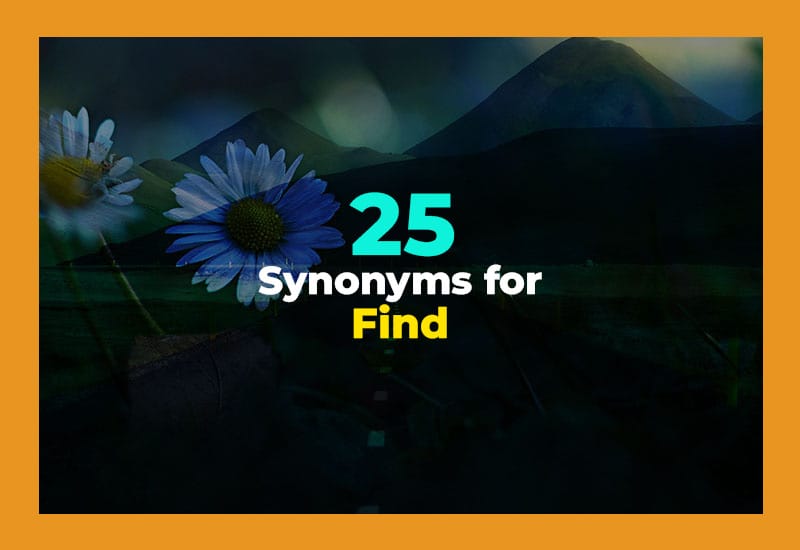
Final Thoughts
There you go—25 simple and fun ways to say ‘find’! Each word brings a little something different, and now you can sound more creative and confident. Whether you're writing a story, talking with friends, or learning new words, these synonyms can help you express yourself better. Keep practicing and see how many you can use every day!
| Synonym | Meaning | Example |
|---|---|---|
| Discover | Find something new | I discovered a new park. |
| Locate | Find the exact place | I located my missing wallet. |
| Spot | See something quickly | I spotted my friend in the crowd. |
| Detect | Notice something hidden | The machine detected a problem. |
| Uncover | Find something hidden or secret | They uncovered a hidden door. |
| Identify | Know or name something | I identified the animal by its sound. |
| Come across | Find by chance | I came across an old letter. |
| Track down | Search hard to find something | We tracked down the missing cat. |
| Stumble upon | Find by accident | I stumbled upon a cool photo. |
| Reveal | Show something that was hidden | He revealed the truth. |
| Unearth | Find something buried or old | They unearthed an old coin. |
| Encounter | Come across something or someone | I encountered a funny animal. |
| Catch | Notice something quickly | I caught a mistake in the test. |
| Recognize | Know something from before | I recognized that voice. |
| Observe | Watch something carefully | I observed the bird's behavior. |
| Notice | See or hear something | Did you notice the new painting? |
| Pick up | Learn or find something | I picked up a new skill today. |
| Dig up | Find something by searching deeply | I dug up some old toys. |
| Expose | Show something secret or hidden | The report exposed the truth. |
| Determine | Find something out through thinking | We determined the right answer. |
| Ascertain | Find out something for sure | I ascertained the cause of the sound. |
| Pinpoint | Find the exact thing or place | He pinpointed the source of the noise. |
| Get hold of | Find and grab or contact | I got hold of the last ticket. |
| Hunt down | Search hard until found | They hunted down the answer. |
| Figure out | Understand or solve | She figured out how it worked. |

